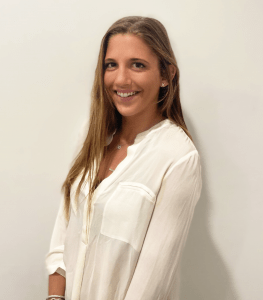
Keck School of Medicine student, Eloise Stanton ‘23, has been awarded ‘Best Presentation’ at the International Research Conference on Plastic Surgery and Craniofacial Surgery for her presentation on “Gene Mutation and Pharmacological Exposure in Exacerbating Craniosynostosis.” Her research focuses on craniosynostosis, a birth defect that involves premature fusion of cranial sutures, which constricts brain growth and causes an increase in intracranial pressure and deformities to the skull. Eloise’s project is geared towards understanding the development of craniosynostosis through genetics and its interplay with an environmental component, citalopram, a frequently prescribed SSRI (antidepressant) that has been shown to impact the stem cells that are responsible for suture patency.
Mice with a mutation to the Twist1 gene are predisposed to developing unilateral or bilateral craniosynostosis of one particular suture, though not all mice with this mutation are affected. The human homolog of this gene is responsible for Saethre-Chotzen syndrome, which also involves craniosynostosis. Eloise was able to demonstrate how prenatal exposure of Twist1 mutant mice to citalopram through the drinking water led to an increased frequency of craniosynostosis, which typically affects some, but not all, mice with Twist1 mutation. She also discovered an increase in the frequency of the most severe craniosynostosis phenotype seen in these mice, such that a higher number of mice exposed in utero to citalopram developed bilateral craniosynostosis.
“This was my first oral presentation for this project, so I was definitely pretty nervous going into it,” said Eloise, who conducted her research in the Chai Lab at the Center for Craniofacial Molecular Biology. “I’ve been extremely invested in this project and really care about it, and it kind of flows naturally. Coming out of the conference I did feel very confident about my presentation, I just felt like I really knew it through and through.”
When asked about her overall reaction to receiving the award, Eloise stated, “I was really excited because I really care so much about this project, but I was quite surprised when I got the award because it seemed more than I could hope for.”
Eloise extends her gratitude to Drs. Yang Chai and Mark Urata, as well as Dr. Yuan Yuan and Linda Hattemer, who have played integral roles in her research. Being the only medical student at the Center for Craniofacial Molecular Biology, Eloise is grateful for the opportunity to be a part of a team that is welcoming and supportive of her work.
The International Research Conference is a federated organization dedicated to bringing together leading academic scientists, researchers and research scholars to share their discoveries and innovations pertaining to Plastic Surgery and Craniofacial Surgery.